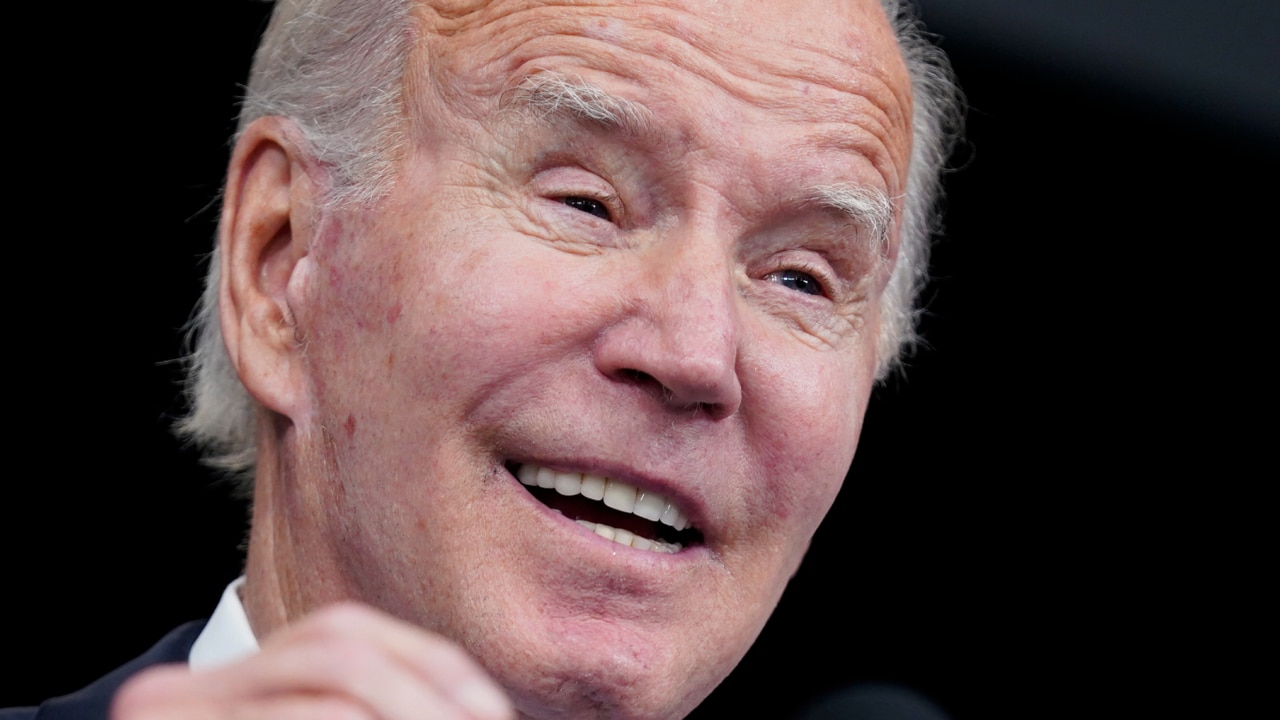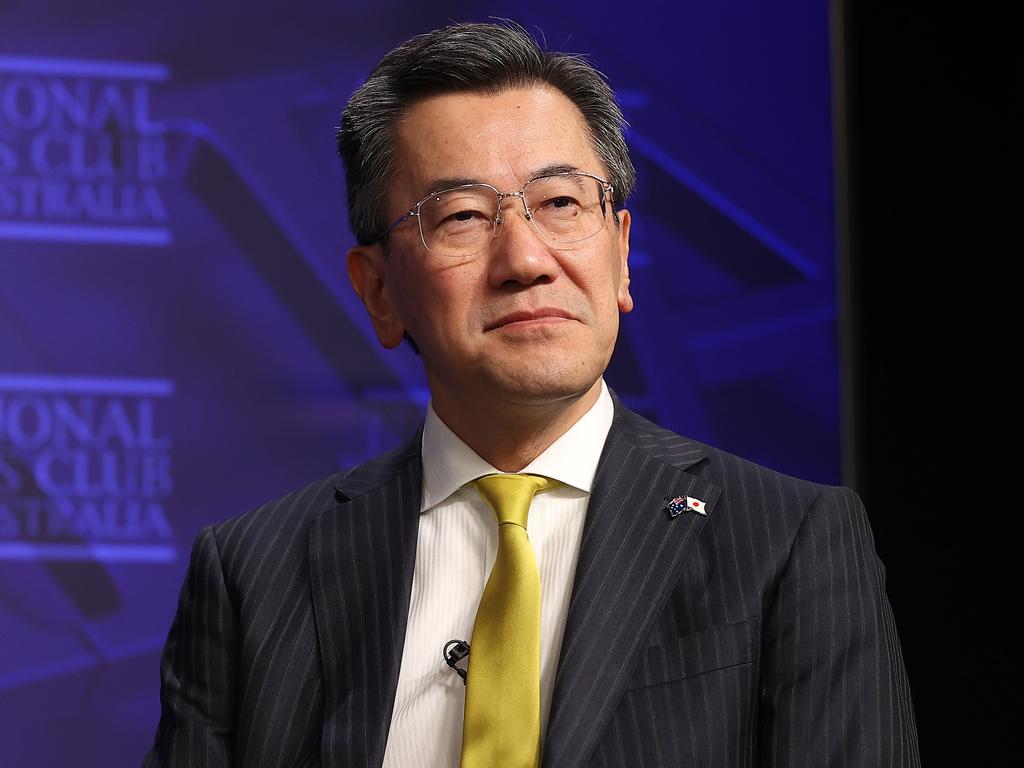Anthony Albanese breaks ice with China
Anthony Albanese has become the first Australian PM in three years to speak face-to-face to a Chinese leader, signalling a likely meeting with Xi Jinping in Bali.

Anthony Albanese has become the first Australian prime minister in three years to speak face-to-face to a Chinese leader, after Premier Li Keqiang sought him out at the ASEAN summit in Cambodia, signalling a likely meeting with President Xi Jinping in Bali this week.
The four-minute exchange came as US President Joe Biden consulted with key allies including the Prime Minister, and the leaders of South Korea and Japan, ahead of his bilateral meeting with Mr Xi on Monday evening.
Mr Biden will seek assurances from the Chinese leader over key security issues including the future of Taiwan, the war in Ukraine, and the PRC’s involvement in a Cambodian naval base.
Mr Albanese said his encounter with Mr Li at the ASEAN gala was “constructive” and “very positive”, with discussion focused on the upcoming 50th anniversary of diplomatic relations between the countries.
Mr Li approached Mr Albanese with his interpreter at the dinner on Saturday night, leading to a warm exchange. The conversation was read by China-watchers as “step one in an icebreaker with Australia”.
“I saw it as a sounding out; it was a good sign,” one regional expert said.
In an unscheduled 40-minute meeting between Mr Albanese and Mr Biden, the two leaders discussed the AUKUS pact and a potential address to a joint sitting of parliament when the President visits Australia next year for a Quad leaders’ meeting.

Mr Albanese said Australia’s standing in the region had risen as a result of his government’s intense diplomatic campaign, “and that is a benefit for all those who have respect for Australia’s position, and the United States is one of those”.
The East Asia Summit, comprising the 10 ASEAN nations and eight other countries, closed on Sunday without issuing a joint leaders’ statement after the US and Russia failed to agree over the wording, suggesting this week’s G20 summit will also be the first to end without consensus.
Russian Foreign Minister Sergei Lavrov, who left the East Asia summit early, said there was a “clear trend on militarisation of the region through co-ordination of efforts of local US allies such as Australia, New Zealand, Japan, with NATO enlargement”.
Earlier, Mr Albanese condemned Russia’s invasion of Ukraine in a speech to summit delegates, eyeballing Mr Lavrov who was standing in for President Vladimir Putin.
Mr Albanese declared: “I didn’t miss him.”
Amid rising regional concern over strategic rivalry between the US and China, Indonesian President and G20 chairman Joko Widodo used his closing speech at the East Asia Summit to warn Southeast Asia “must not be a proxy to any powers”.
“ASEAN should not let current geopolitical dynamics turn into a new Cold War in our region,” Mr Joko said before flying out for Bali, the G20 venue.
Mr Joko’s comments came after Mr Albanese told the summit that Australia’s nuclear submarine partnership with the US and the UK was a response to the “complex regional security environment”, and raised Australia’s concerns over the future of Taiwan, and the threat to peace posed by North Korea.
Mr Biden entered his meeting with Mr Albanese hours after the President saw off a threatened “red wave” in the US mid-terms, retaining hold of the Senate in a stunning result that strengthened his power and left Republicans devastated.
Mr Biden, said he would be “coming in stronger” to his scheduled bilateral meeting with Mr Xi in Bali as result.
In Bali on Monday night, Mr Albanese will deliver a speech to B20 global business leaders warning that the global inflation crisis, sparked by the Ukraine war, posed the biggest economic test since the 2008-09 global financial crisis.
“Right now, we face a collective economic challenge new to the G20, indeed new to our generation,” he will say, according to an advance copy of his address.
Mr Albanese will say that, just as the G20 developed a global stimulus package to deal with the GFC, the group needs to lead the collective response to the supply-side shock that is driving up prices across the world.
“Indeed, recovering stronger depends on recovering together,” he will say, borrowing from Indonesia’s G20 theme.
“We do this by ensuring that our tax systems reward people for their hard work and repay the initiative and enterprise of our businesses and job-creators.
“By building the resilience and diversity of our supply chains, so we are better prepared for global shocks.”
The collective challenge will also require nations to work together to respond to climate change, Mr Albanese will say, offering Australia’s support as a future “renewable energy superpower”.

Australia’s B20 delegation will include Andrew Forrest, Sun Cable boss David Griffin, Macquarie Group Asia CEO Verena Lin, Aspen Medical chief executive Bruce Armstrong, Commonwealth Bank chief Matt Comyn, and Business Council of Australia CEO Jennifer Westacott.
In Cambodia, Australia finalised a revised ASEAN-Australia-New Zealand free trade agreement that Mr Albanese said would allow greater access for Australian goods and services in the region. He said Australia was determined to unlock new trade and investment opportunities with Southeast Asian partners, and urged the region’s support for Australia’s bid to host UN climate change summit in 2026.
Scott Morrison was the last Australian prime minister to meet with Mr Li, speaking to him on the sidelines of the 2019 ASEAN summit in Bangkok.
The last substantive bilateral leaders’ meeting between an Australian prime minister and Mr Xi was with Malcolm Turnbull in 2016.
Mr Albanese has expressed hope that he and Mr Xi will meet in Bali, “but a meeting was yet to be locked in”. He said it would be “constructive” if a meeting went ahead, and emphasised Australia set no preconditions for the talks.
“Out of dialogue comes understanding and we need more, not less, in today’s uncertain world,” Mr Albanese said.
“I think there is a great deal of goodwill here, certainly from Australia. And I have no reason to think that there’s not goodwill on the Chinese side as well.”
Mr Biden earlier sought assurances from Cambodian Prime Minister Hun Sen about China’s upgrade of a WWII naval on the Gulf of Thailand would not result in a PLA military presence in the country.







To join the conversation, please log in. Don't have an account? Register
Join the conversation, you are commenting as Logout